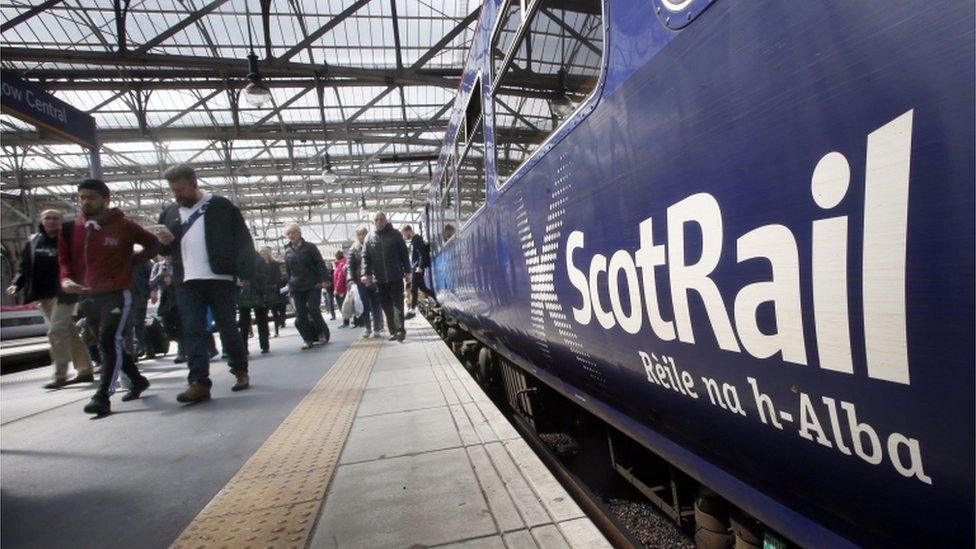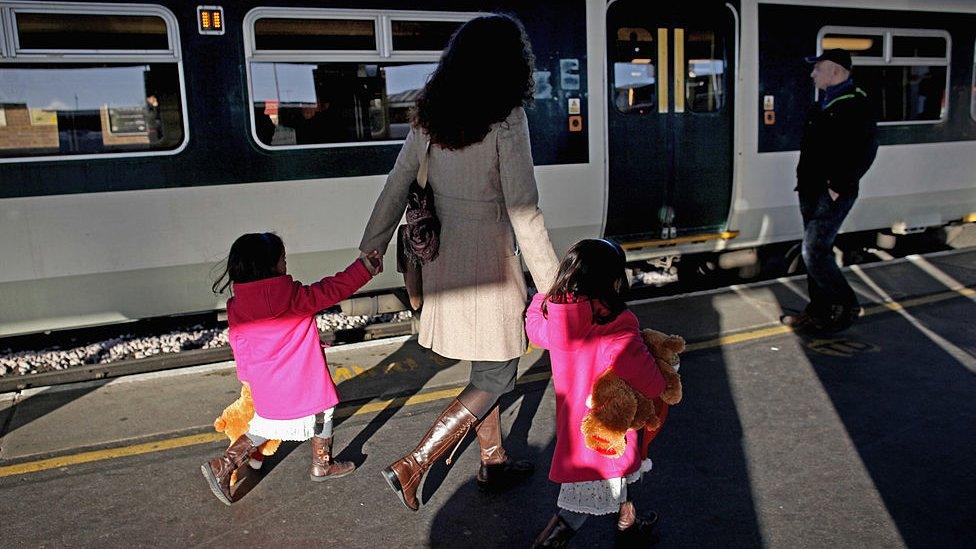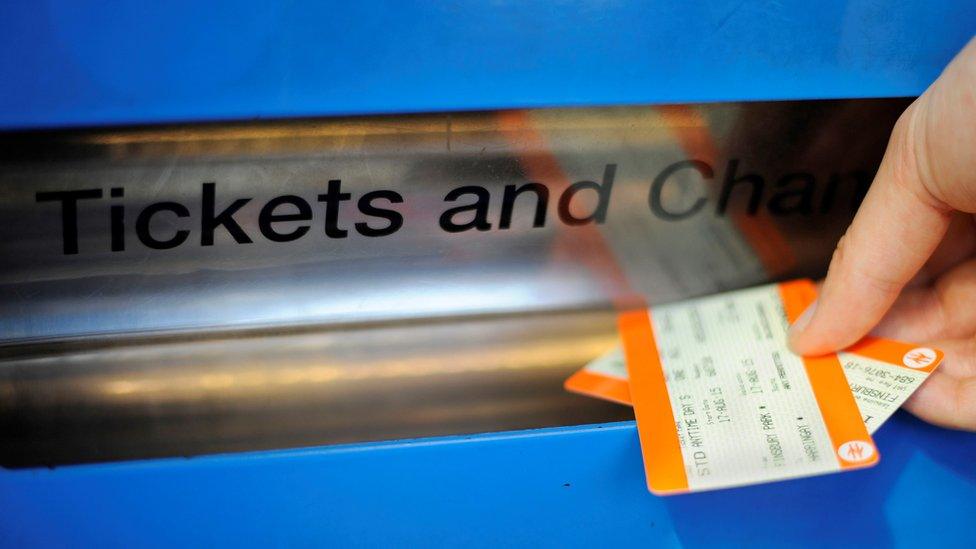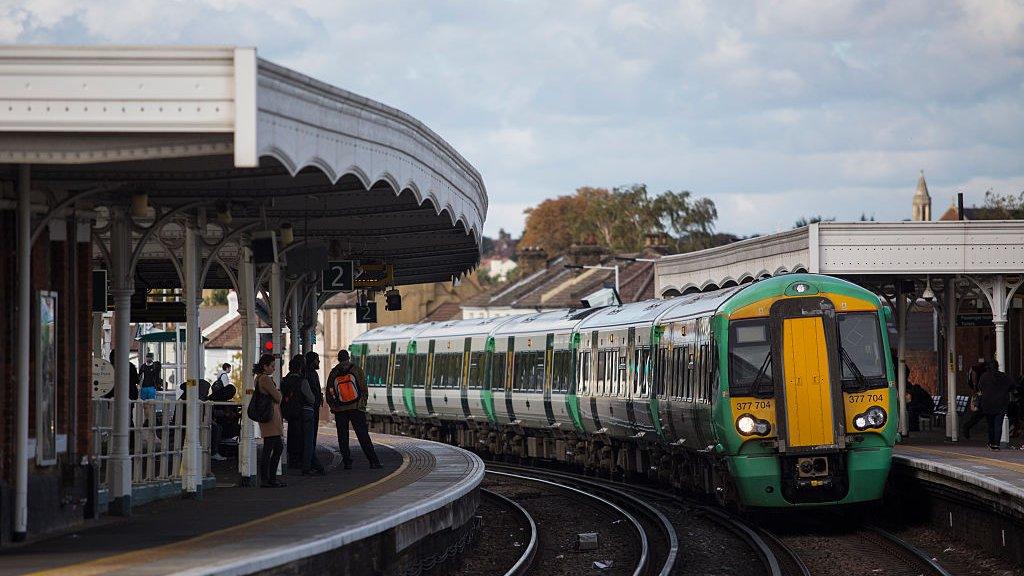Rail fares to rise by up to 3.6%
- Published

Rail users in Scotland will see a 3.6% increase in regulated rail fares from January 2018.
Abellio ScotRail can raise fares by as much as the Retail Prices Index (RPI) figure for July. This figure is the highest since 2011, when it was 5%.
Passenger groups said commuters would be worst-hit, and called for a halt to the increases.
The Scottish government said it had restricted the rise to ensure Scotland had the lowest price rises in the UK.
The price rise will affect season tickets and "anytime" fares, while off-peak fares will go up by 2.6%.
Peak fares are pegged to the retail prices index. The Scottish government currently limits rises in off-peak fares to RPI minus 1%.
Transport Secretary, Humza Yousaf, said ministers had restricted the annual increase to ensure Scottish commuters were cushioned from the rises.
He added: "At the same time we have introduced a number of initiatives to support passengers including offering a free week's travel - equal to the cost of a rail fare freeze - which has been taken up by 90% of season ticket holders.
"While there has to be an increase in fares to support rail services our actions ensure the annual increase for key fares is never more than inflation and that any increase for off peak fares is always less than inflation.
"This allows us to continue to invest in improvements, to grow passenger numbers and to ensure rail travel is fair, affordable and an attractive alternative to travelling by car."
Unions and campaigners held protests outside stations across the UK, including at Glasgow Central.
Graham Buchanan from the RMT union in Scotland said: "There's a national campaign going on today all over Britain regarding the fare increases that are being proposed - up to 4% - and we just feel that it's time that this stopped.
"Since 2010, there's been a 32% increase in train fares, whereas average wages have only increased by about 16% and people just cannot keep on going like that.
"People need to get to their work, but it's a bit chunk out of their income."
Campaign group Transport Focus called for the RPI measure to be replaced by the Consumer Prices Index, which is typically lower than RPI.
CPI was unchanged at 2.6% in July.

The Office for National Statistics' James Tucker, said the body was aware of the drawbacks of using RPI as a benchmark: "We know there will be a focus on the RPI this month, but the National Statistician has been clear it is not a good measure and we do not recommend its use."
The UK government said fare increases were justified by improvements to the network.
"We are investing in the biggest rail modernisation programme for over a century to improve services for passengers - providing faster and better trains with more seats," a spokesman for the Department for Transport said.
"We have always fairly balanced the cost of this investment between the taxpayer and the passenger."

Are you affected by the fare increases? Do you pay more than £5,000 on rail fares? You can email haveyoursay@bbc.co.uk, external with your experiences.
Please include a contact number if you are willing to speak to a BBC journalist. You can also contact us in the following ways:
WhatsApp: +447555 173285
Tweet: @BBC_HaveYourSay, external
Send pictures/video to yourpics@bbc.co.uk, external
Send an SMS or MMS to 61124 or +44 7624 800 100
- Published15 August 2017

- Published5 July 2017
